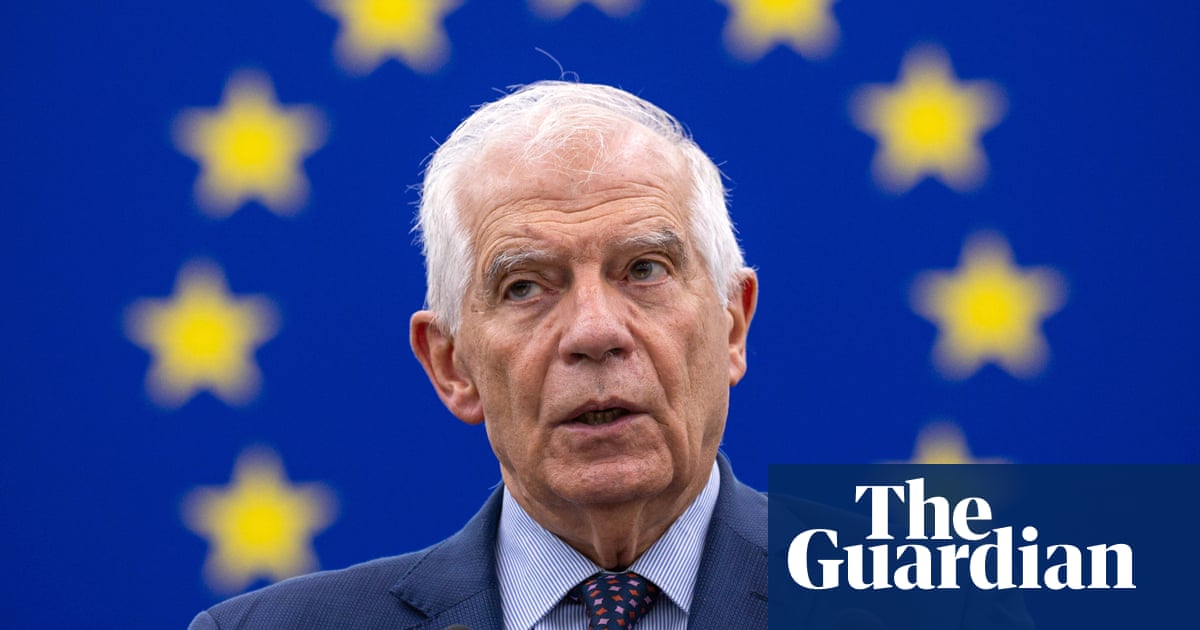The EU must come up with a more assertive response to the humanitarian catastrophe inGazaand the violations of international law, the bloc’s former chief diplomat has said.
In a strongly worded article, Josep Borrell said the EU had a “duty” to intervene and must come up with its own concerted plan to end the war instead of relying on the US.
“Europe can no longer afford to linger at the margins,” he said in the article that was co-authored with Kalypso Nicolaïdis, an occasional adviser to the EU and professorial chair in international affairs at the Florence school of transnational governance at the European University Institute. “The EU needs a concerted plan.
“Not only is Europe’s own security at stake, but more important, European history imposes a duty on Europeans to intervene in response to Israel’s violations of international law,” they say, adding: “Europeans cannot stay the hapless fools in this tragic story, dishing out cash with their eyes closed.”
Their intervention inForeign Affairsmagazine comes as EU member states continue to struggle to unite on action. Last week Borrell’s successor, Kaja Kallas, said it was “very clear” that Israel hadbreached its human rights commitmentsin Gaza but said the “concrete question” was what action the member states could agree on.
Her remarks were made after a review of the EU-Israel association agreement, a trade and cooperation pact, was triggered last month by 17 member states in protest at Israel’s blockade of humanitarian aid to Gaza.
The authors say there are ways and lessons from the past to guide EU member states who want to take action without having to get buy-in from countries reluctant to do so, for historical reasons, including Germany, Hungary and Austria.
They suggest a number of actions, from using the EU’s financial leverage, to suspending Israel’s presence in EU programmes such as the Erasmus+ student exchange.
They also suggest EU member states could explore using article 20 of the EU’s treaty to “allow for at least nine member states to come together to utilise certain foreign policy tools not related to defence”.
“Because such an action has never been taken before, those states would have to explore what [it] … would concretely allow them to do,” the article said.
Borrell and Nicolaidïs argue that the disunity in the EU has reduced what should be a powerful mediating voice in the Middle East into a bit player.
“Some EU leaders cautiously backed the international criminal court’s investigations, while others, such as Austria and Germany, have declined to implement its arrest warrants against Israeli officials,” they say. “And because EU member states, beginning with Germany and Hungary, could not agree on whether to revisit the union’s trade policy with Israel, the EU continues to be Israel’s largest trading partner.
“As a result, the EU, as a bloc, has been largely relegated to the sidelines, divided internally and overshadowed in ceasefire diplomacy by the United States and regional actors such as Egypt and Qatar. Shouldn’t the EU also have acted as a mediator?”
